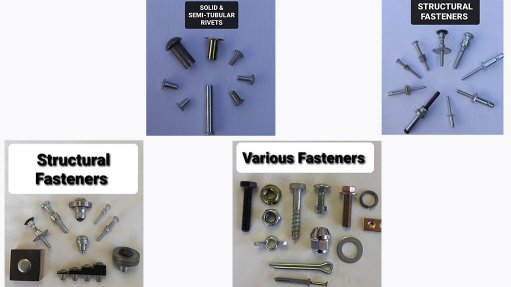Itac should conduct verification of designated products, services, consultancy advises
Trade compliance body the International Trade Administration Commission of South Africa (Itac) should be empowered to conduct verification of products and services that have been designated under localisation regulations to ensure that South Africa gains the expected benefits of localisation, international trade consulting practice XA International Trade Advisors head of research Dr Clive Vinti said during a webinar on July 19.
Since the development of the initial local procurement accords and regulations in 2011 and more recently in the Economic Reconstruction and Recovery Plan, South Africa has identified local procurement as a primary policy to achieve industrial development in the country through the use of designation as one of the levers, he pointed out.
In the initial Local Procurement Accords in 2011 and 2012, government committed to consult with businesses and industries on identifying products and services that could potentially be designated.
Further, government also committed, as early as 2012, to measure the impact of designation on the relative competitiveness of designated products and its impact on job creation yearly.
However, the Industrial Policy Action Plan is clear, and notes that there are no stringent legal or administrative measures to deal with noncompliance with localisation regulations and designations, and government is too uncoordinated, fragmented and institutionally weak to adequately monitor local content, Vinti said.
The Department of Trade, Industry and Competition (DTIC), in presentations to Parliament, has allocated R22-million for verification processes and the DTIC verified 74% of tenders in terms of localisation value, but only verified 10% of the total number of tenders in terms of localisation regulations.
"It is clear there is a huge gap in terms of verification of local content compliance. There have been instances where companies have falsified local content declarations," Vinti said.
Additionally, there are administrative justice challenges with current designation processes, as businesses are not aware when a product is being considered for designation, and only a National Treasury secular notice is sent out when a product or service is designated. It is also not clear what information and criteria were used to assess the viability of a product or service, and there are no review reports of the decisions, he noted.
These challenges can be overcome by leveraging Itac and its expertise in verification in terms of trade policies and international treaty compliance.
"We believe, as designation is significant, there must be a specific set of regulations for local content designation as a trade policy, and it must be administered similarly to other trade policies and regulations, such as anti-dumping measures," Vinti recommended.
He said Itac was the most qualified body to administer local content designation and can ensure administrative justice in terms of fairness and lawfulness, as well as rationality by producing investigation reports.
It is important to have complete transparency of the process of designating products, as there are cost impacts arising from designation, Vinti noted.
A report by capital markets research and consulting firm Intellidex, commissioned by business organisations Business Unity South Africa and Business Leadership South Africa, showed that, if local content regulations were pushed through over the short term without due consideration for their impact, this would push prices of these products up by up to 20%.
Comparably, a European Union study on the impact of renewable energy equipment localisation policies in South Africa found that prices in the renewable energy sector could increase by up to 10%, Vinti highlighted.
The recent 2017 Preferential Procurement Policy Framework regulations have been challenged in court, but the declaration of invalidity of the regulations has been temporarily suspended. There are draft regulations expected this year, but it remains unclear how products are identified and then designated, he said.
However, the South African National Standard 1286:2017 'Local goods, services and works - Measurement and verification of local content' provides for third parties, specifically qualified auditors and industry specialists, to be allowed to verify local content, Vinti noted.
"This means government has improved institutional verification by broadening the scope of people, specifically experts and specialists, who can do verification. This should go a long way to help the [South African Bureau of Standards]," he said.
Meanwhile, the Intellidex report on localisation showed that businesses are broadly supportive of localisation, but doubt that the South African government knows how to do so effectively.
"A key output of the report is that South African businesses are not ready for localisation in the short- to medium-term. The 150 companies that responded indicated that they foresee localisation as possible over the long-term, but, over the short- to medium-term, government does not seem to understand the capacity in local industry and the conditions necessary for localisation to exist," said Vinti.
Some products can be localised in the short term but, for most of the products government is seeking to localise, the conditions are not conducive on the ground, he emphasised.
This is why greater consultation with industry on potential products and services, and more information and transparency of designation processes and rationale, as well as investigations and reviews, are necessary.
"The biggest issue is transparency of the process, which is tied to procedural fairness. The Local Procurement Accord in 2012 said the DTIC should consult widely and measure the impact of the designations every year. Currently, there is no data available on the impact and/or benefit of localisation," he said.
Local content designations administered by Itac and supported by consultation and verification processes can help to ensure local content is implemented and evaluated to the benefit of South Africa, said Vinti.
Comments
Announcements
What's On
Subscribe to improve your user experience...
Option 1 (equivalent of R125 a month):
Receive a weekly copy of Creamer Media's Engineering News & Mining Weekly magazine
(print copy for those in South Africa and e-magazine for those outside of South Africa)
Receive daily email newsletters
Access to full search results
Access archive of magazine back copies
Access to Projects in Progress
Access to ONE Research Report of your choice in PDF format
Option 2 (equivalent of R375 a month):
All benefits from Option 1
PLUS
Access to Creamer Media's Research Channel Africa for ALL Research Reports, in PDF format, on various industrial and mining sectors
including Electricity; Water; Energy Transition; Hydrogen; Roads, Rail and Ports; Coal; Gold; Platinum; Battery Metals; etc.
Already a subscriber?
Forgotten your password?
Receive weekly copy of Creamer Media's Engineering News & Mining Weekly magazine (print copy for those in South Africa and e-magazine for those outside of South Africa)
➕
Recieve daily email newsletters
➕
Access to full search results
➕
Access archive of magazine back copies
➕
Access to Projects in Progress
➕
Access to ONE Research Report of your choice in PDF format
RESEARCH CHANNEL AFRICA
R4500 (equivalent of R375 a month)
SUBSCRIBEAll benefits from Option 1
➕
Access to Creamer Media's Research Channel Africa for ALL Research Reports on various industrial and mining sectors, in PDF format, including on:
Electricity
➕
Water
➕
Energy Transition
➕
Hydrogen
➕
Roads, Rail and Ports
➕
Coal
➕
Gold
➕
Platinum
➕
Battery Metals
➕
etc.
Receive all benefits from Option 1 or Option 2 delivered to numerous people at your company
➕
Multiple User names and Passwords for simultaneous log-ins
➕
Intranet integration access to all in your organisation


















